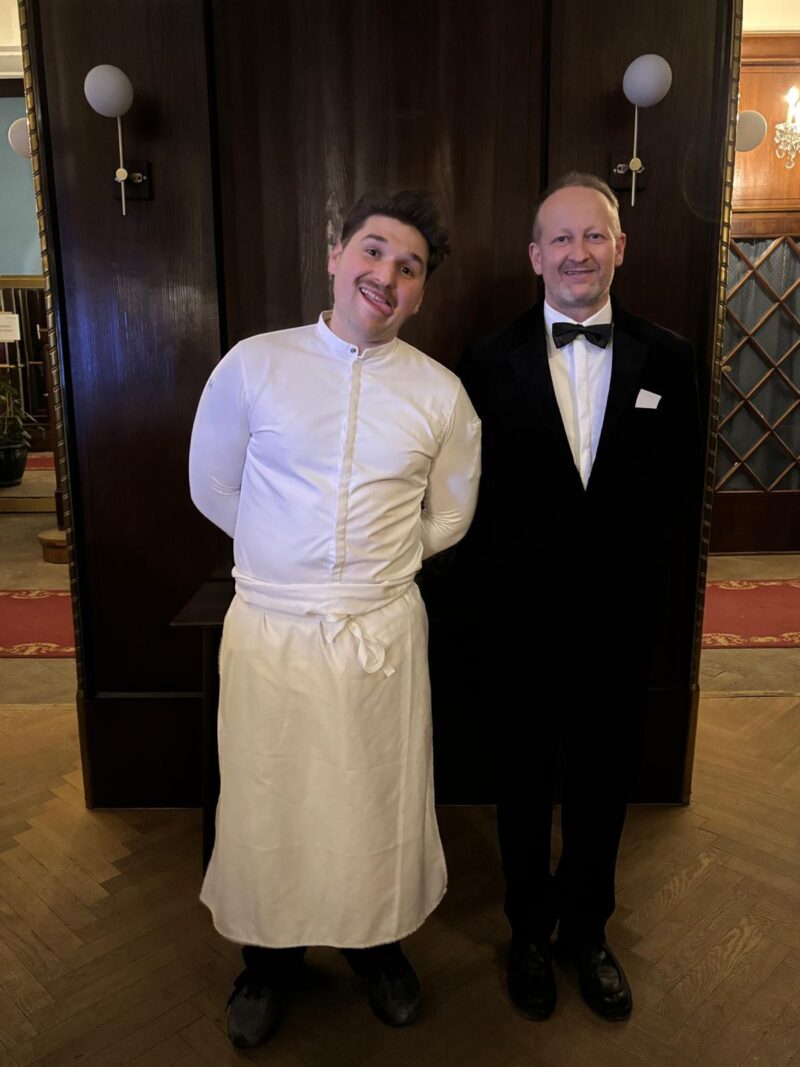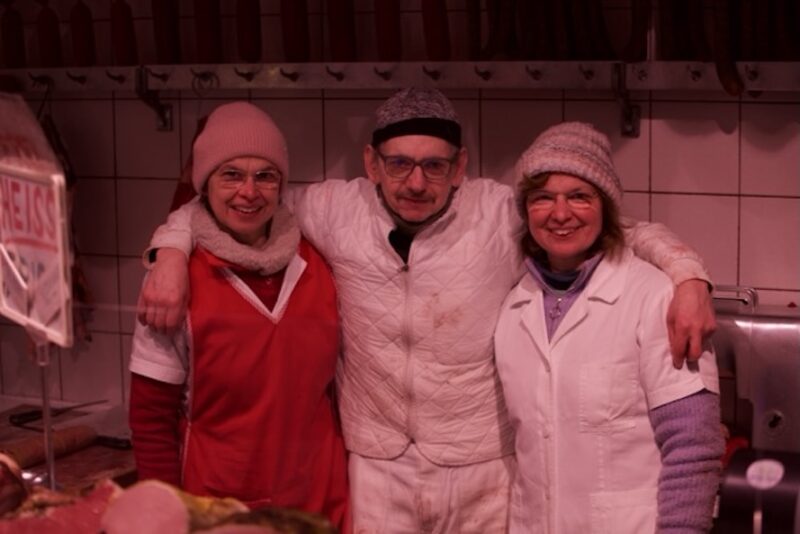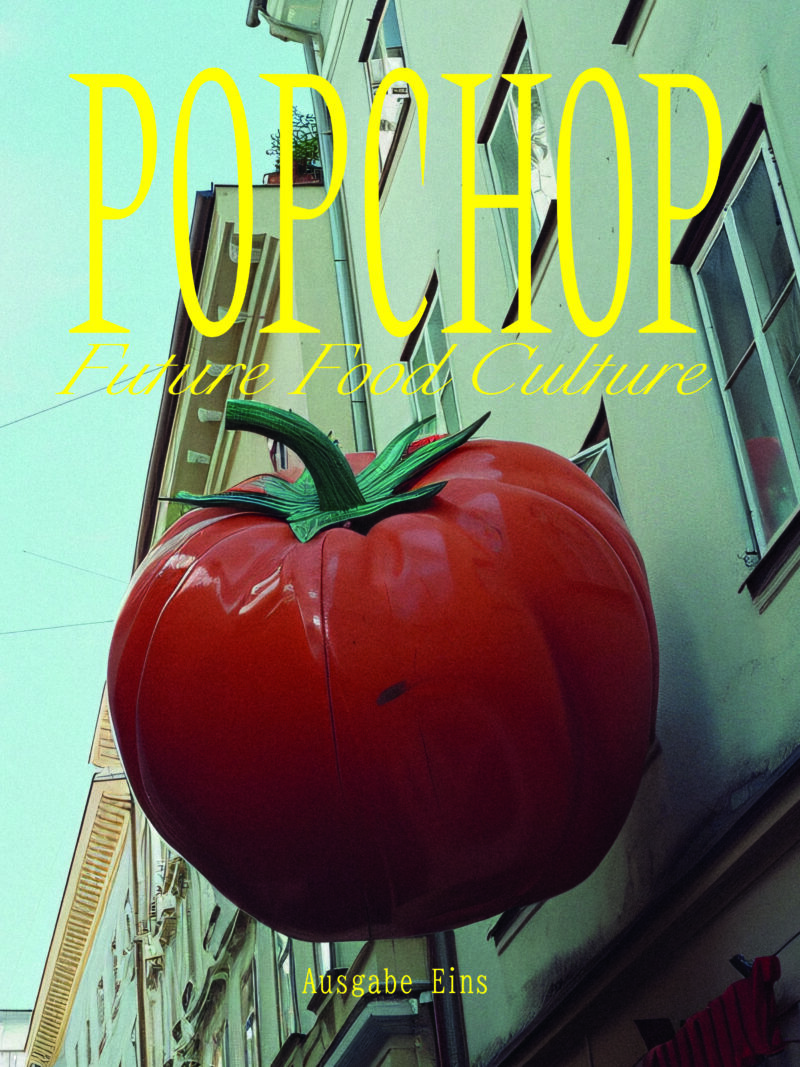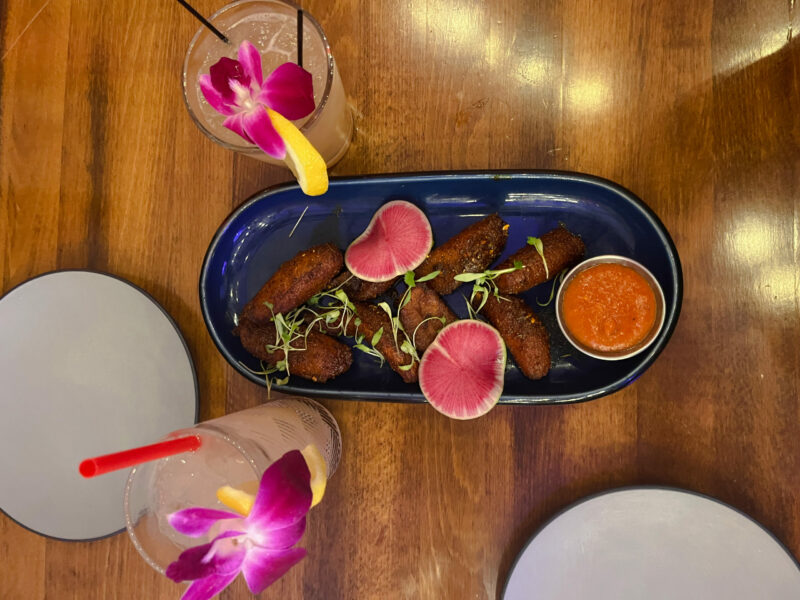The Diaspora Table: Creating Space for Syria at LaRoche
This is the follow-up to our new series, where Tas brings people from various diaspora communities in Vienna to restaurants representing their home countries — to break bread and talk with the chef or owner.
Part Two: LaRoche — a Syrian street and soulfood restaurant with three locations.
“I don’t like food,” Mouris Aziz says. Our table of four looks at him, a bit incredulous. We’ve been talking to Mouris for the past hour at LaRoche, the tiny Syrian snack-shop-slash-restaurant he manages on a quiet, residential street in Vienna’s 5th district. He’d gone on about the mysterious secrets of their excellent shawarma, the heaping plate of mansaf served at Syrian weddings (and, surprisingly, in this tiny spot), and the intentionally sourced meat that hits LaRoche’s wood charcoal grill with a satisfying szzz. At least 13 people have come by to place takeout orders in that time, and the spit cook and grill master haven’t had a moment’s break.
Mouris shrugs a little, knowing his statement is controversial, and gestures down his body. He’s slim, for sure. He’s also quiet, speaking softly and answering questions with little elaboration. When we insist being skinny is not a good enough answer as to why a restaurant manager doesn’t like food, he cracks a little: “It’s that I like being around people.”
Now this – this makes sense.
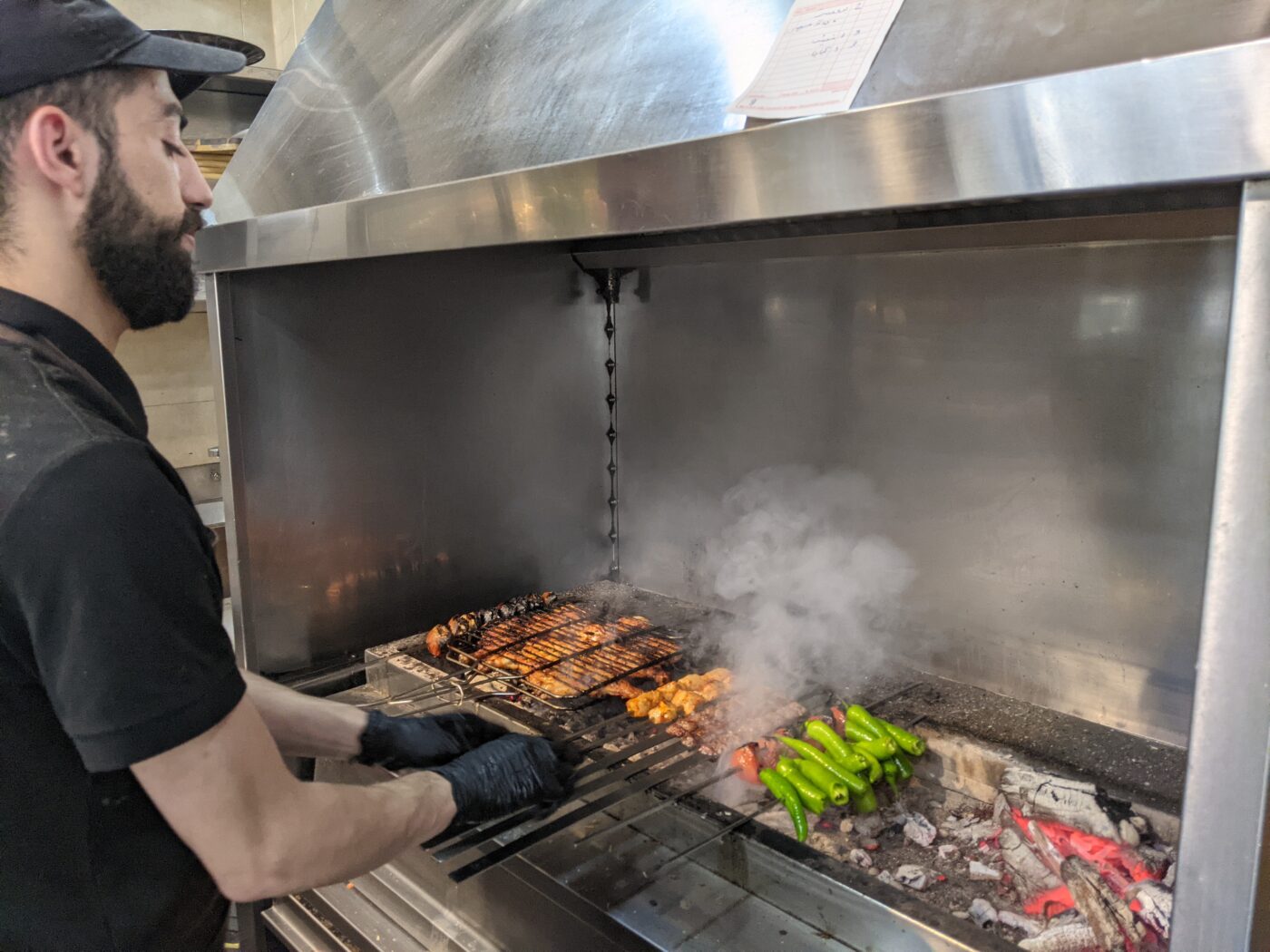
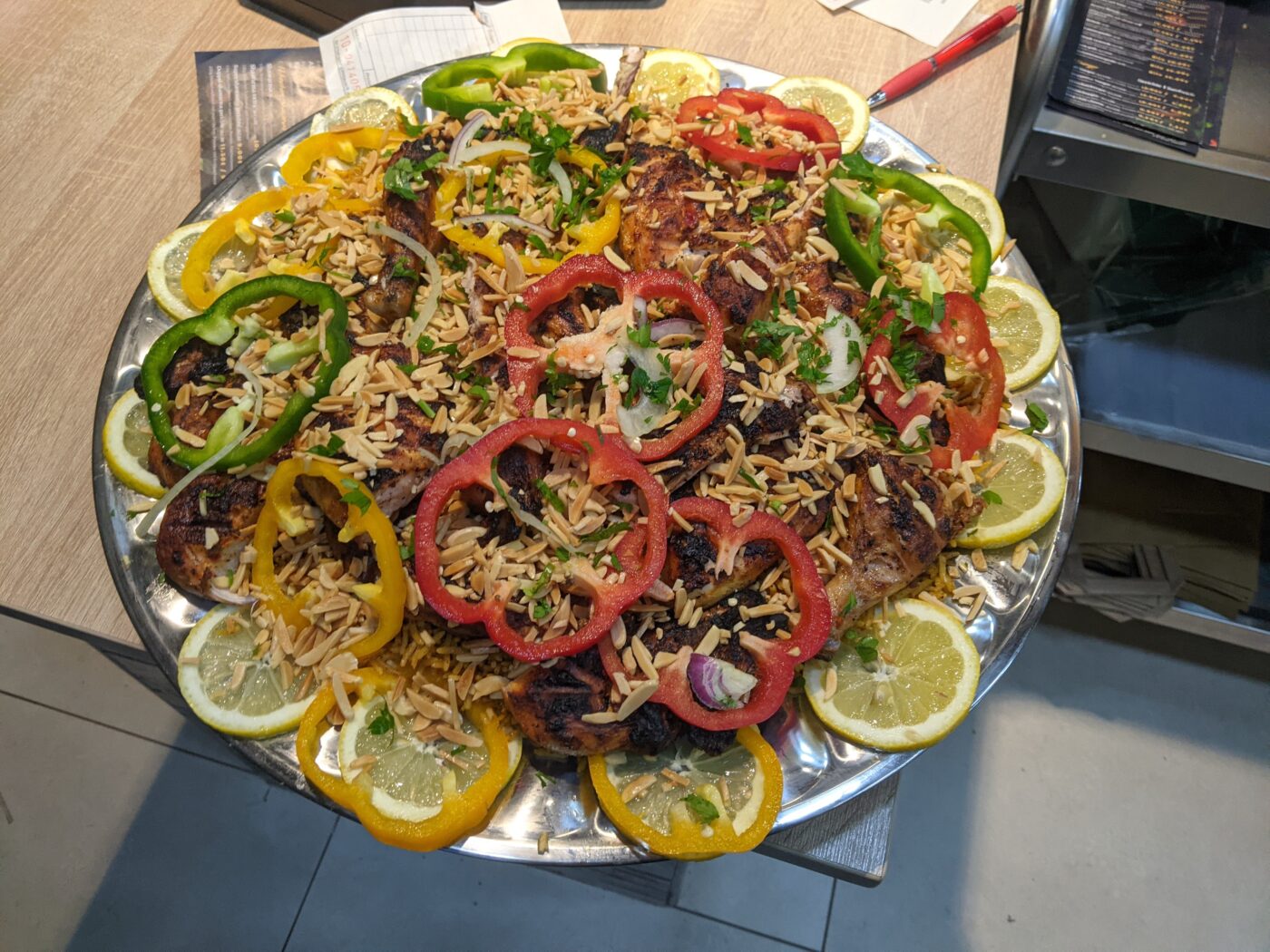
I’d lived a block away from LaRoche for over a year, completely overlooking it until a quiet evening when I cut down a side street and mistook the queue outside for a street party. The crowd was a welcome snapshot of my edge of the 5th district, closer to the Gürtel. Margareten, a traditional Arbeiterbezirk (working-class district) relatively close to Matzleinsdorfer Platz and the old main train station „Südbahnhof“, became a natural first home for newly arrived Gastarbeiter (guest workers) from Turkey and the Balkans in the 1960s and 70s – eventually making room for asylum seekers from Syria and elsewhere about a decade ago. At the beginning of 2024, 53% of the 5th’s population were of foreign origin.
And when Luna Al-Mousli – a 35-year-old Syrian-Austrian who writes by day and makes people dance by night – told me that LaRoche was her favorite Syrian spot in Vienna, I was taken by surprise. What, that little kebab shop by my house?
“We have maybe 5,000 regulars who come here or order out,” Mouris tells us. “I know what they like to eat. I know where they live. We say ‘hello’ or stop and talk on the street.” For Mouris, we understand, the restaurant is less about food, and more about community. “It brings the outside in, but it’s a connection that lasts outside the restaurant. It’s a human connection,” he says.
Back in March, Luna agreed to meet me at LaRoche for an iftar, the sunset fast-breaking meal during the Muslim holy month of Ramadan. We planned to get there before the iftar rush to sit down with Mouris, but that was our first mistake. All five of the small tables in the snack shop were reserved. The kitchen and grill area were chaotic, tray after tray of beautifully charred chicken being shoved into takeaway boxes before hitting the counter. The fryer never stopped crackling and the massive spit of shawarma quickly shrunk by a quarter. The phone didn’t leave Mouris’s ear as orders kept coming in.
So, we ordered takeout. Luna chooses a fajitas sandwich (spelled “fahita”) and I am honestly shocked – again. What was this boring American Tex-Mex dish doing on a menu at a Syrian restaurant in Vienna? And how exactly was this Syrian food?
I watch Luna take a bite, the sandwich oozing with cheese. She puts it down, leans her head back and says, “I forgot how good Syrians are at making sandwiches. Not just shawarma, you know.” I try a bite, and honest to God, it’s wonderful. The cheese is gooey, the peppers and onions are soft and sweet, and the chicken is perfectly marinated and juicy. This isn’t the Tex-Mex dish I grew up on. Luna explains how Syrian cuisine is divided into what everyone knows from home and what is just as important, the street food.
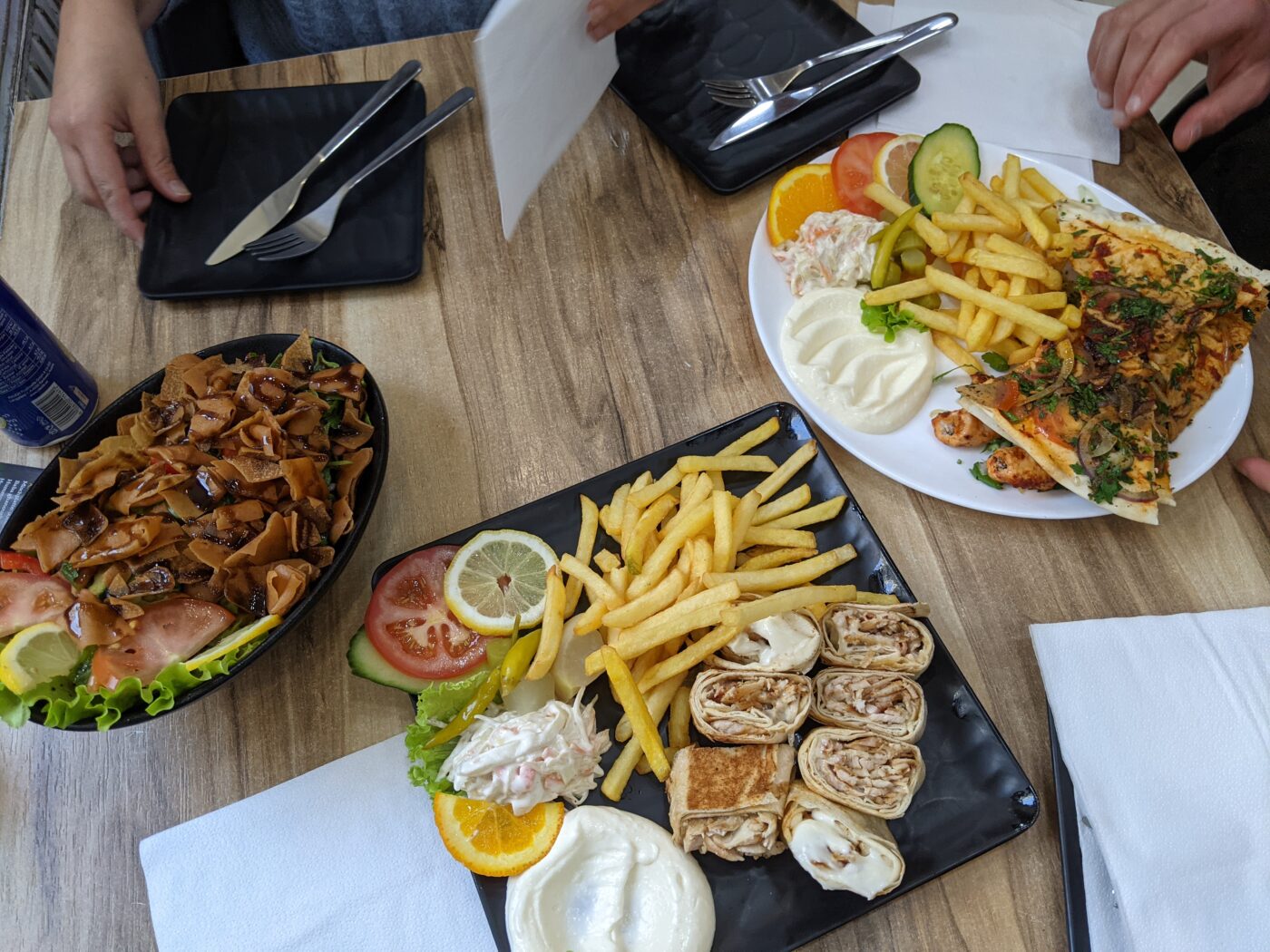
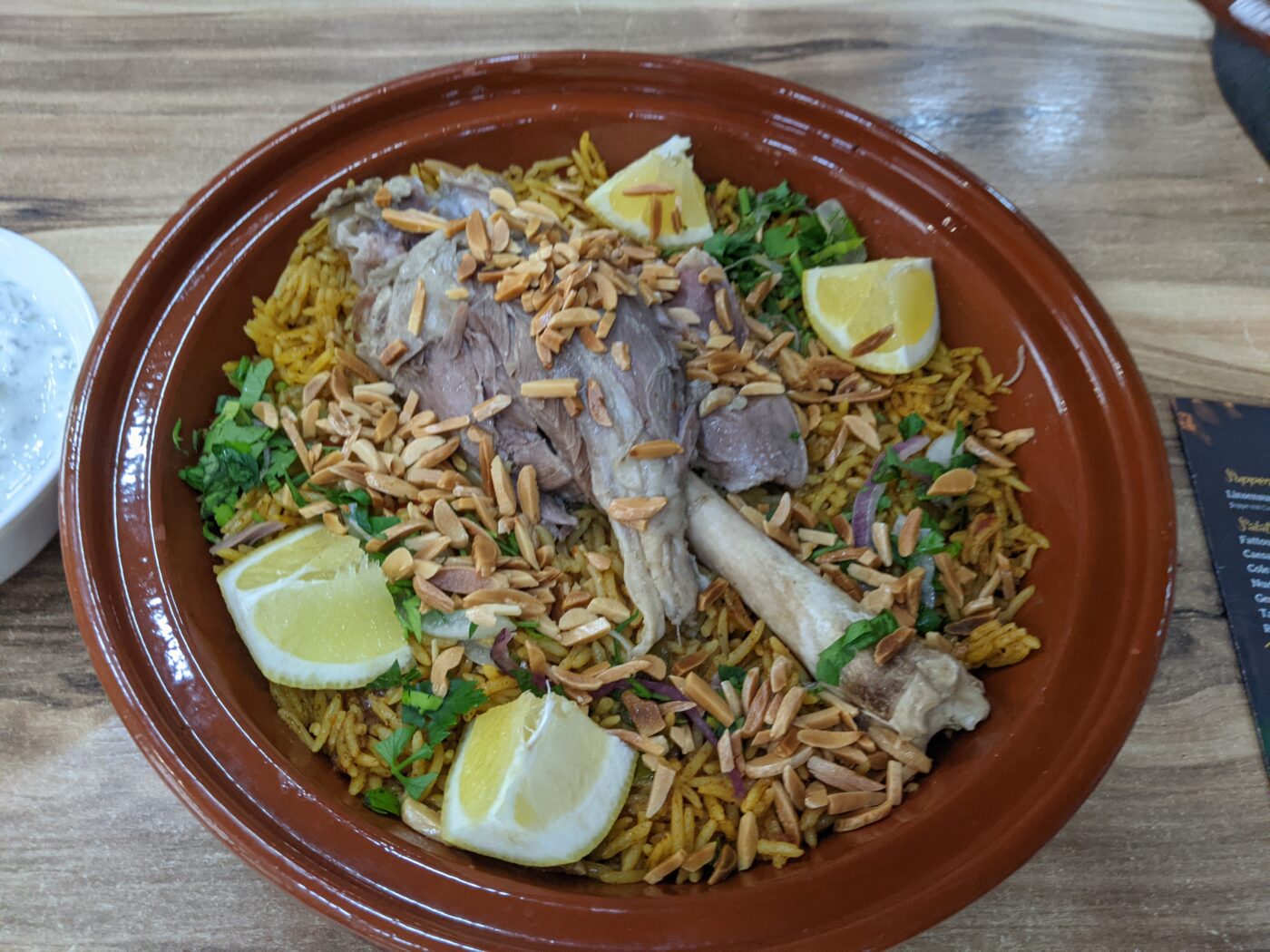
Though Luna was born in Austria, she spent the early years of her childhood in Syria. She remembers walking home from school and being jealous of the kids who would stop at a stall to order a sandwich batata (potato sandwich) – her mom wouldn’t let her spoil her dinner. “I wasn’t raised as someone who eats out,” Luna says. “In the last 12 months, I’ve ordered out twice: once I got pizza for friends who were coming over, and the other time from LaRoche.”
When we sit down with Mouris a month later, he answers Luna’s praise with a nod, unsurprised. After three years with LaRoche’s chef Mohamad Kamel, they’ve expanded to two more locations. “But this spot, the original, it has its own vibe. It’s the home base. People make the effort to come back here,” he says. He adds that more and more Austrians are “discovering the taste of Arab cuisine,” as well. “They come for shawarma, and then they see what someone else is eating, and they point and say, ‘I want that’.”
I do this on another visit, when a tagine sporting a tender leg of lamb makes its way to a neighboring table. It turn out to be the lamb kabsa, and it’s my new favorite dish. This is not street food, but a well-made meal of delicately spiced rice and meat that falls off the bone with the touch of a fork. And at 15 euro, it’s a steal.
At the end of the day, Mouris knows what restaurants like his – quick meals that speak of home at affordable prices – provide his regulars, „especially young people who’ve come to Austria on their own.” The unspoken reality of what that means hangs in the air. “It’s a nice feeling for those here without their parents,” he says.
“I’m lucky my family is here – and that’s how I have access to the more rare things,” Luna tells me later on. “Like, I wouldn’t eat yalanji [stuffed grape leaves] out. My mom and grandma make them, and usually we would also be there helping to roll them. It’s a nice collective work.”
Around 2016, Luna says she started noticing a change in Vienna’s food scene, with more Arab fast food shops opening. “People only knew kebabs, but shawarma is different. I don’t think Austrians know the difference in the herbs, the meat, the sauce. I mean, look at Brunnenmarkt.”
Luna’s grandfather used to run his medical practice from the 16th district’s popular market. “It’s changed. It used to be a lot of Turkish shops, but now it’s all Syrian, with a few Iraqi and Afghans closer to the 46 tram, as well as a Sudanese shop,” she says.
She points out that many who were professionals in their home countries now run food stalls in Vienna because their certifications and expertise don’t transfer over. This is true for Mouris himself – he was a photojournalist in Syria. Like many who fled the civil war in 2015, Mouris’s journey from Aleppo to Austria was arduous and didn’t all go as planned. But now, reunited with his wife, Mouris has a hobby studio for himself, taking whatever opportunity he can to photograph events.
For Luna’s family, their arrival in Austria was in a different time and place. “When you tell people here you’re Syrian but you’re not a refugee, it starts to get very complicated in people’s minds,” she says, attributing much of this confusion to a lack of knowledge and to unexamined racism. For her, navigating identity is complex, and her family’s perception of racism has shifted over generations. For her grandmother, who arrived with her grandfather to a small Austrian community, “the word didn’t exist for her back then,” she says. “And anyway, to whom do you go to say you think your neighbor is racist? Her whole village had invested in them being here, you can’t go back and say you didn’t make it because you had a racist neighbor.” Her mother’s generation felt the pressure to assimilate. Now, Luna feels her generation has the language and the community to finally say, “we have a word for this, and it’s not okay.”
Luna channels that understanding into her art, and she happens to be a bit of a renaissance woman. She’s a novelist, a graphic designer, and a DJ with Raqsouna collective, which she co-founded. “I do all the things that I do out of passion, and out of the search for collectiveness and togetherness,” she says. “I want to create spaces where people like me exist the way they are. The writing part is more the silent part, and the music and dancing part is more loud. And I realize that in both of them … as much as I find the space to be joyful, I also find the space to grieve.”
That mix of joy and grief became electric last December with the fall of Assad’s regime. Luna recalls a “childlike, irrational euphoria” in the diaspora, a frantic hope of return that quickly collided with the reality of a new political limbo for asylum seekers.
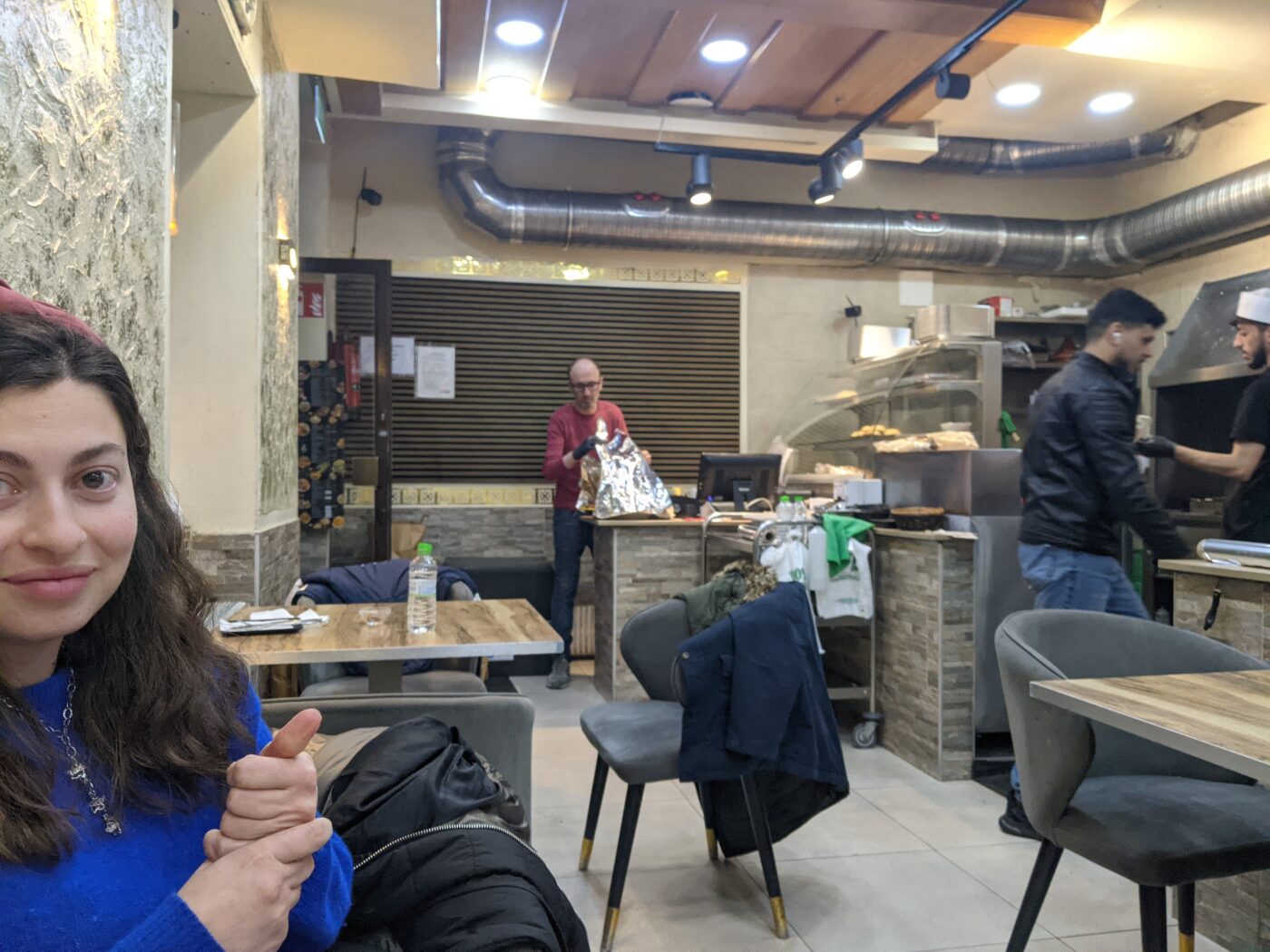
“On that Thursday, we were all at my aunt’s house and everyone was like a kid, excited and hopeful, looking up flights to go back to pay witness.” She likened it to Austrians giddily trying to buy Oasis concert tickets back in August, “gathering with all of their laptops open to the ticket page, hitting refresh, refresh, refresh.”
“For my family, it was like that, but it was going home,” she recalls. “Wanting to be there in the phase of ‘the fall.’ This is what they gave up everything for.”
At LaRoche, Mouris continued in his role as the quiet observer of the community’s mood. “I don’t engage much,” he admits, “but I hear a lot of what people are saying. There were a lot of excited people.”
Luna remembers that moment with final sadness. “For me, I was looking at them like, how can there be tickets when there is no airport anymore? When the only airport nearby, in Beirut, was being bombed by Israel?”
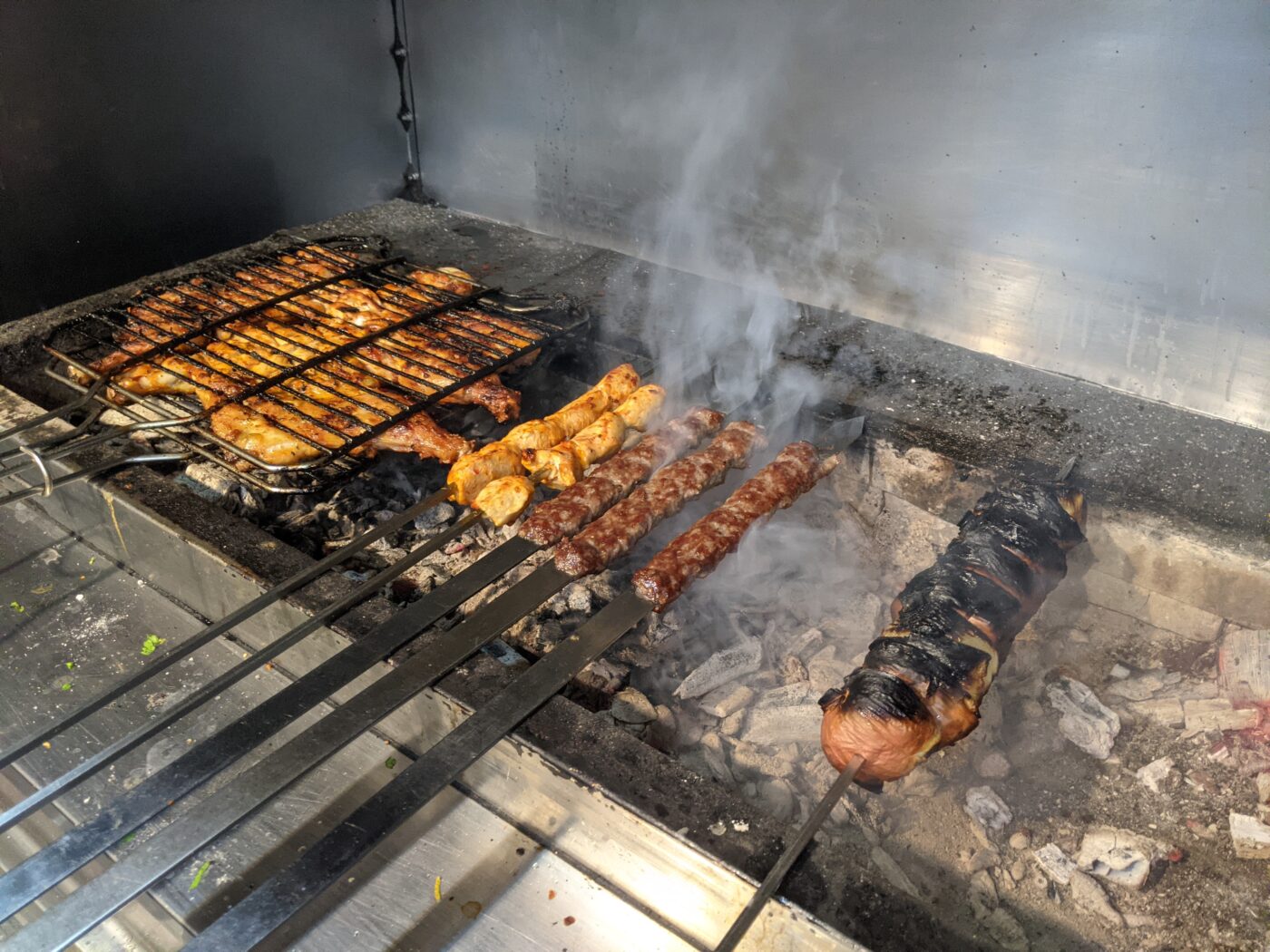
For Mouris, the airline website had less appeal. He holds up his phone, showing us a photo of his six-year-old daughter. “We’re here because of the little one,” he says. “The priority has shifted. She was born here. She knows German. She goes to school here. Here’s where we’re going to be.”
Luna reminds me how grateful she is for places like Mouris’s. “Before LaRoche opened, I was only able to enjoy the food my mom or grandma cooked,” she says. “This was the closest I could be to home, to Syria. But LaRoche is one of those places where I have the feeling that the streets of Syria come to life.”
Luna asks me to imagine, with the far-right gaining so much power in Austria, that they manage to send back those who have sought refuge here. “These places would die. And all that might remain would be copies, places where no one can taste the difference.” She laughs off her sorrow with a brash statement: “Then you can go have your falafel with mango sauce.”

